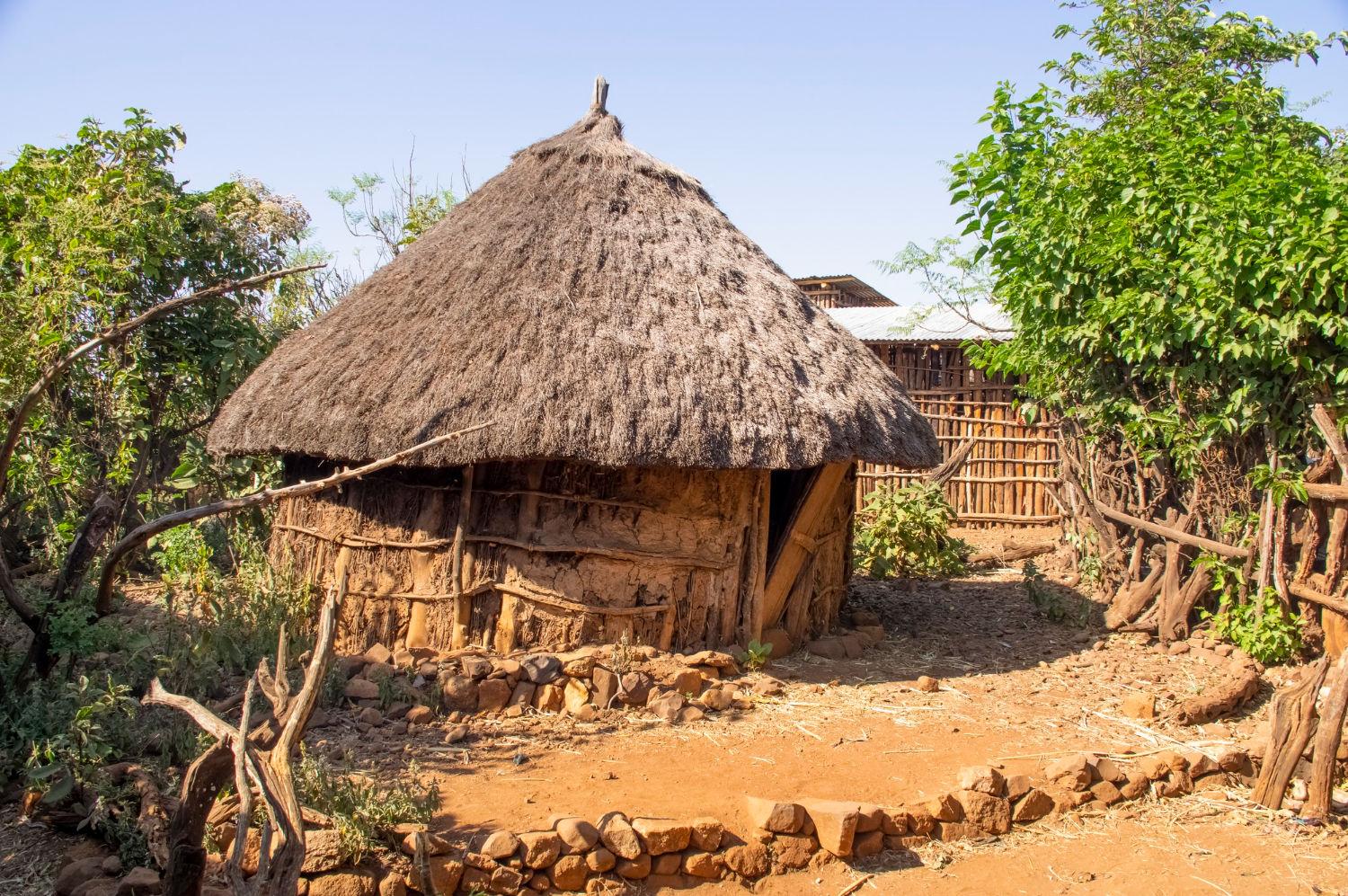Ethiopia
Ethiopia Country Guide

Ethiopia, officially known as the Federal Democratic Republic of Ethiopia, is a country rich in history and cultural diversity. It is located in the Horn of Africa and is notable for being one of the oldest independent nations in the world.
Ethiopia is landlocked, bordered by Eritrea to the north, Djibouti and Somalia to the east, Kenya to the south, South Sudan to the west, and Sudan to the northwest. Ethiopia’s economy has been among the fastest-growing in sub-Saharan Africa. This country stands out as a nation with deep historical roots and cultural richness amidst ongoing challenges and transformations in its political landscape.
Things To Know Before Going To Ethiopia
- Ethiopia is considered the birthplace of coffee, and the traditional coffee ceremony is a vital part of social life.
- Ethiopia follows its calendar, about seven to eight years behind the Gregorian calendar.
- Ethiopia is one of the few African nations that successfully resisted colonization.
- The Ethiopian Orthodox Church is one of the oldest Christian institutions in the world.
- Ethiopian food is known for its use of injera, which is served with various stews called wot.
- Greetings are important in Ethiopian culture.
- The country is home to some of the hottest places on Earth.
Where Is Ethiopia?
Ethiopia is located in the Horn of Africa, a region in East Africa. It shares borders with six countries: Eritrea to the north, Djibouti and Somalia to the east, Kenya to the south, and South Sudan and Sudan to the west.
What Is The Capital Of Ethiopia?
The capital of Ethiopia is Addis Ababa, which translates to “New Flower” in Amharic. It is the largest city in the country and serves as a significant political, economic, and cultural hub.
Is Ethiopia Expensive To Visit?
Visiting Ethiopia can be relatively affordable compared to many other destinations, but costs can vary based on travel style and preference. A budget traveler can expect to spend around $30 to $50 per day, covering accommodation, meals, transportation, and activities.
Currency Of Ethiopia
The currency of Ethiopia is the Ethiopian Birr (ETB). it is subdivided into 100 santims.
Is Going To Ethiopia Worth It?
Yes, Ethiopia is a compelling travel destination, offering a unique blend of history, culture, and stunning landscapes. Home to ancient landmarks like the rock-hewn churches of Lalibela and the castles of Gondar, the country is a paradise for history enthusiasts. Adventure seekers can explore breathtaking sites, while food lovers will enjoy distinctive Ethiopian cuisine, including communal meals centered around injera and traditional coffee ceremonies.
Is Ethiopia Good For A Honeymoon?
Yes, Ethiopia can be an excellent choice for a honeymoon, especially for couples seeking a unique and adventurous experience. The country offers a rich tapestry of history, culture, and stunning landscapes, making it ideal for exploration together.
Is Ethiopia Safe?
Ethiopia’s today for travelers is a complex issue, with varying levels of risk depending on the region and current events. there are significant concerns regarding civil unrest, crime, and potential violence. In urban areas like Addis Ababa, petty crime such as pickpocketing is common, and visitors are advised to exercise caution, especially at night and in crowded places. The country has experienced ongoing ethnic conflicts, particularly in regions like Amhara and Tigray, which can lead to spontaneous violence and roadblocks. Travelers are generally advised to avoid certain border areas due to the risk of armed conflict and kidnappings.
Best Cities In Ethiopia
Here is a table of the best cities in Ethiopia:
| City Name | Best For | Best Attractions | Average Trip Cost |
| Addis Ababa | Culture and History | National Museum, Holy Trinity Cathedral, Merkato Market | $30 - $50 per day |
| Lalibela | Unique Religious Sites | Rock-Hewn Churches, Bete Giyorgis | $50 for multi-day pass |
| Bahir Dar | Natural Beauty and Relaxation | Blue Nile Falls, Lake Tana Monasteries | $40 - $70 per day |
| Gondar | Historical Exploration | Castles of Gondar, Debre Birhan Selassie Church | $40 - $60 per day |
| Axum | Ancient Civilization | Obelisks of Axum, St. Mary of Zion Church | $30 - $50 per day |
| Harar | Cultural Experience | Old Walled City, Hyena Feeding Tradition | $25 - $45 per day |
| Simien Mountains | Adventure and Nature | Trekking, Wildlife Viewing | $50 - $100 per day |
| Gambella | Wildlife and Remote Exploration | Gambella National Park | $30 - $60 per day |
Best Ethiopia Attractions
- Lalibela: Famous for its rock-hewn churches, a UNESCO World Heritage Site that showcases incredible medieval architecture.
- Blue Nile Falls: Known as "Tis Issat" (meaning "smoking water"), this stunning waterfall is best viewed during the rainy season when it is at its fullest.
- Simien Mountains National Park: Offers breathtaking landscapes and diverse wildlife, ideal for trekking and hiking adventures.
- Aksum: Home to ancient obelisks and ruins, this city is significant for its historical and religious importance.
- Gondar: Known for its well-preserved castles and churches, reflecting the city’s rich history as a former royal capital.
- Danakil Depression: One of the hottest places on Earth, featuring unique geological formations like sulfur springs and salt flats.
- Awash National Park: A great spot for wildlife viewing, with diverse ecosystems and the scenic Awash River.
- Bale Mountains National Park: Known for its endemic wildlife and stunning mountain scenery, perfect for hiking enthusiasts.
- Omo Valley: Renowned for its diverse tribal communities, offering a unique cultural experience.
- National Museum of Ethiopia: Houses important historical artifacts, including the famous fossilized remains of Lucy, one of the oldest hominids discovered.
Best Time To Visit Ethiopia
The best time to visit Ethiopia is generally from September to February, when the weather is dry and pleasant, making it ideal for exploring the country’s diverse attractions.
Ethiopia Language
Amharic is the official language and serves as a working language for the federal government. It is a Semitic language belonging to the Afroasiatic family. Alongside Amharic, four other languages have been granted official status: Oromo, Tigrinya, Somali, and Afar. English is widely taught and serves as a common second language, especially in urban areas and educational institutions.
Time Zone Of Ethiopia
Ethiopia operates on East Africa Time (EAT), which is UTC+3.

